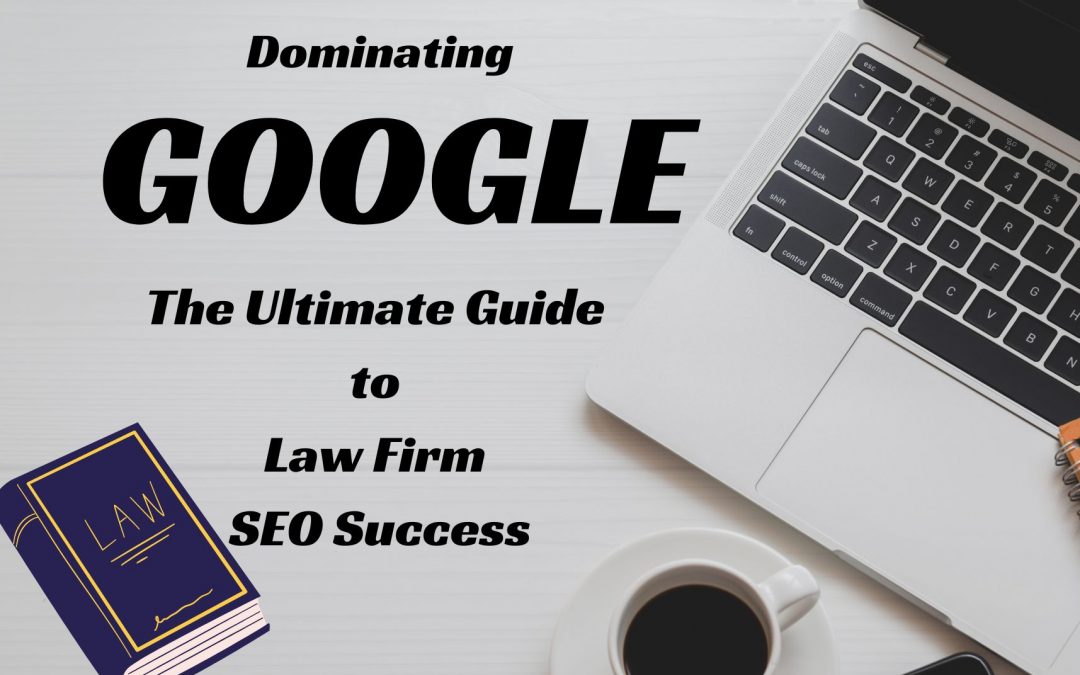In the online world today, having a strong internet presence is key for any business, especially law firms. When people need legal help, their first reaction is often to search on Google. This is where SEO for law firms becomes essential..
Law Firm SEO means doing things to make your law firm’s website show up higher in Google results. This gets you more online visibility, more website traffic, and more clients. This guide explains all you need to know about Law Firm SEO, from the basics to advanced tips.
Why SEO is Essential for Law Firms
With high competition, just having a nice-looking website is not enough. If your site doesn’t show up on Google, you miss potential clients. Here is why a Law Firm SEO Service Agency matters:
Increased Visibility: SEO puts you in front of people searching for legal help.
Targeted Traffic: SEO draws clients specifically needing your legal specialty.
Credibility and Trust: Higher Google rankings make your firm look more established and reliable.
Cost-Effective: Compared to ads, SEO offers more value for money invested.
Competitive Edge: Firms using SEO stand out over ones that don’t.
The Building Blocks of Law Firm SEO
Law Firm SEO requires many moving parts working together. Let’s break it down:
Keyword Research: The Foundation of Your SEO
Keywords are the words and phrases people search for when looking for legal services online. Thorough keyword research is crucial for SEO success. Here’s how to do it:
Brainstorm: List your legal services and words people might use to search for them.
Use Tools: Free tools like Google Keyword Planner find keyword search volume and competition levels.
Long-Tail Keywords: Specific longer phrases like “personal injury lawyer Miami” often attract targeted visitors more likely to convert to clients.
Analyze Competitors: See what keywords your competition ranks for to find new ideas.
On-Page Optimization: Fine-Tuning Your Website
On-page SEO means optimizing elements on your actual website to appear higher on Google, including:
Page Titles and Descriptions: These should accurately describe each page’s content using relevant keywords.
Header Tags: Use headers like H1, and H2 to structure your content logically highlighting important keywords.
Content Optimization: Ensure all page content is useful and detailed and naturally includes target keywords.
Internal Linking: Link relevant pages on your site to help Google understand your site structure.
Image Optimization: Use descriptive file names and text for images appropriately including keywords.
Mobile Optimization: In today’s mobile world, ensure your site looks good on phones and tablets.
Page Speed: Slow loading frustrates users and hurts rankings. Speed up your site.
Technical SEO: Behind the Scenes Optimization
Technical SEO means optimizing unseen elements like site architecture so Google can understand and index you better:
Site Structure: Organize your site logically with clear page hierarchies.
Sitemaps: Create XML sitemaps to help Google crawl your site more efficiently.
Robots.txt: Use this file to manage which pages Google bots can and cannot access.
Canonical Tags: Implement to prevent duplicate content issues.
Structured Data: Add schema markup so Google understands your content better, including services, and location.
Content Marketing: Building Authority and Attracting Clients
Content marketing involves creating useful legal content consistently, helping build your reputation, and attracting clients naturally over time:
Blogging: Publish regular educational blog posts targeting keywords visitors search for.
Case Studies: Share client success stories demonstrating your experience and legal capabilities.
Infographics: Create engaging visuals simplifying complex legal concepts for your audience.
Videos: Use online videos to connect more personally with potential clients.
Ebooks/Whitepapers: Offer in-depth legal resources on specific issues to capture new contacts.
Local SEO: Reaching Nearby Clients
For many law firms, local clients drive significant business. Local SEO focuses on optimizing your online local visibility by:
Google My Business: Optimize your Google business listing to rank highly for local legal searches.
Citations: Ensure your law firm name, address, and phone number appear consistently across key online directories Yelp, and others.
Reviews: Request satisfied clients to leave you positive local reviews to build credibility.
Local Content: Blog about regional legal issues using locally optimized keywords reaching people in your community.
Link Building: Earning Votes of Confidence
Links from reputable external websites to yours signal trust and authority to Google. Some white hat link-building tactics include:
Guest Posting: Publish helpful articles on credible sites getting backlinks to your website.
Resource Pages: Request to get listed among trusted legal resources on relevant niche sites.
Broken Link Building: Recommend your useful content to replace broken links found on other legal sites.
Brand Mentions: Reach out to legal sites referencing you without links asking them to add links pointing back to your content.
Measuring and Tracking Results
SEO keeps evolving so tracking performance identifies what’s working versus areas needing improvement. Key metrics to monitor:
Organic Traffic: Visitors find you via search engines.
Rankings: Your position on Google results pages for target keywords.
Conversion Rates: Percentage of visitors that become clients.
Backlinks: The volume and quality of external sites linking to you.
Use Google Analytics and Search Console to quantify progress in identifying optimization opportunities.
Advanced Law Firm SEO Tactics
Once your SEO foundations solidify, consider more advanced strategies for even greater visibility and conversions:
Technical Audits: Diagnose and fix technical problems limiting website performance.
Content Gap Analysis: Determine legal topics your competition already ranks well for that you don’t yet cover with content and create posts around these gaps.
Advanced Link Building: Use digital PR, influencer collaborations, and content partnerships to earn valuable reputable backlinks at scale.
Conversion Rate Optimization (CRO): Optimize website design and user experience to increase the percentage of visitors contacting your firm.
Pay-Per-Click (PPC) Ads: Run Google/Bing ads along with SEO efforts driving additional direct traffic.
Conclusion
Law firm SEO enables fueling targeted client growth online but requires comprehensive execution across many moving parts – from keyword research all the way through conversion optimization. Investing into a robust holistic strategy elevates your visibility and trust on Google so nearby searches for legal assistance connect with your qualified firm consistently across devices. As algorithms evolve, continuously refine on-page content, website enhancements, and link profiles keeping your firm positioned as the go-to legal authority in your region.












